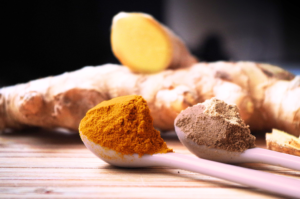What are the advantages and disadvantages of eating ginger?
Ginger has been used for centuries in traditional medicine, and its benefits to the human body are numerous. Here are some of the advantages of ginger:
Digestive Health
1. Relieves nausea and vomiting: Ginger has natural anti-inflammatory properties that help alleviate nausea and vomiting, making it a popular remedy for motion sickness, morning sickness, and chemotherapy-induced nausea.
2. Eases digestive discomfort: Ginger helps reduce bloating, cramps, and diarrhea by relaxing the muscles in the digestive tract and reducing inflammation.
3. Supports gut health: Ginger has prebiotic properties, which help feed the good bacteria in the gut, promoting a healthy gut microbiome.
Anti-Inflammatory Effects
1. Reduces pain and inflammation: Ginger’s anti-inflammatory compounds, such as gingerol and shogaol, help reduce pain and inflammation in the body, making it a potential natural remedy for arthritis, muscle soreness, and menstrual cramps.
2. Lowers risk of chronic diseases: Chronic inflammation is linked to various diseases, including heart disease, diabetes, and cancer. Ginger’s anti-inflammatory properties may help mitigate this risk.
Antioxidant Properties
1. Protects against cell damage: Ginger’s antioxidant properties help protect cells from damage caused by free radicals, which can contribute to aging, cancer, and other diseases.
2. Boosts immune system: Ginger’s antioxidants may also help support the immune system, reducing the severity of illnesses like the common cold and flu.
Respiratory Health
1. Eases congestion: Ginger’s natural expectorant properties help loosen and clear mucus from the lungs, making it a popular remedy for colds, coughs, and bronchitis.
2. Reduces asthma symptoms: Ginger’s anti-inflammatory properties may help reduce inflammation in the airways, alleviating asthma symptoms.
Other Benefits
1. Lowers blood sugar: Ginger may help regulate blood sugar levels and improve insulin sensitivity.
2. Supports heart health: Ginger’s anti-inflammatory properties may help reduce blood pressure, cholesterol levels, and risk of heart disease.
3. May reduce cancer risk: Ginger’s antioxidants and anti-inflammatory compounds may help reduce the risk of certain types of cancer, such as colon, breast, and ovarian cancer.
Precautions
While ginger is generally considered safe, excessive consumption may cause:
– Heartburn
– Stomach upset
– Interactions with certain medications (e.g., blood thinners, diabetes medications)
To reap the benefits of ginger, consume it in moderation (1-2 teaspoons per day) and consult with a healthcare professional if you have any underlying medical conditions or concerns

What are the advantages and disadvantages of eating ginger?
Benefits of Ginger for Belly Fat (In English)
Understanding the query:
The user is asking about the benefits of ginger in reducing belly fat. Let’s delve into the science behind this popular claim.
Ginger and Belly Fat: A Closer Look
While ginger is renowned for its numerous health benefits, including aiding digestion and reducing inflammation, there’s no concrete scientific evidence to suggest that it specifically targets belly fat. However, several mechanisms might contribute to its potential role in weight management:
* Metabolism Boost: Ginger contains compounds that can slightly increase your metabolic rate, meaning your body burns more calories.
* Appetite Suppression: Some studies indicate that ginger might help curb appetite, leading to reduced calorie intake.
* Reduced Inflammation: Chronic inflammation is often linked to weight gain, especially around the abdominal area. Ginger’s anti-inflammatory properties could help combat this.
* Improved Digestion: By aiding digestion, ginger can help prevent bloating and discomfort, which can sometimes be mistaken for weight gain.
How to Incorporate Ginger into Your Diet
A simple and effective way to enjoy ginger.
* Ginger in Cooking: Add it to stir-fries, soups, or marinades.
* Ginger Supplements: Available in capsule or powder form.
Important Note:
* Not a Magic Bullet: While ginger can be a helpful addition to a weight loss regimen, it’s not a standalone solution.
* Lifestyle Changes: For sustainable weight loss, focus on a balanced diet, regular exercise, and adequate sleep.
* Consult a Healthcare Professional: If you have underlying health conditions or are taking medications, consult your doctor before making significant dietary changes.
Conclusion
While the direct impact of ginger on belly fat might be modest, its overall health benefits make it a valuable addition to a healthy lifestyle. By combining ginger consumption with a balanced diet and regular exercise, you can support your weight management goals.
Would you like to know more about other natural remedies for weight loss or perhaps some delicious ginger recipes?

What are the advantages and disadvantages of eating ginger?
Scientific Benefits of Ginger:
1. Anti-inflammatory and Antioxidant Effects: Research has shown that ginger contains bioactive compounds like gingerol, which have potent anti-inflammatory and antioxidant properties. These compounds can help reduce oxidative stress and inflammation in the body, which may contribute to preventing chronic diseases like heart disease, cancer, and neurodegenerative conditions.
2. Digestive Health: Studies have demonstrated that ginger can stimulate the production of digestive enzymes, promoting better digestion and helping with issues like nausea, bloating, and indigestion. It is often used to treat conditions like motion sickness and morning sickness during pregnancy.
3. Pain Relief: Ginger’s anti-inflammatory properties have been shown to help reduce pain, particularly in conditions like osteoarthritis and rheumatoid arthritis. Clinical trials suggest that ginger can reduce pain and improve joint function.
4. Blood Sugar Regulation: Some studies indicate that ginger may help lower blood sugar levels by improving insulin sensitivity. This could be beneficial for managing Type 2 diabetes and preventing blood sugar spikes.
5. Cardiovascular Health: Ginger has been linked to improved heart health by lowering blood cholesterol levels, reducing blood pressure, and enhancing circulation. Studies suggest that ginger may help in the prevention of heart disease.
6. Cancer Prevention: Preliminary research suggests that ginger may have cancer-fighting properties, possibly through its ability to inhibit the growth of cancer cells, particularly in gastrointestinal cancers. However, more research is needed to confirm these findings.
Scientific Drawbacks of Ginger:
1. Gastrointestinal Issues: Although ginger is generally safe, consuming large quantities may lead to digestive discomfort, such as heartburn, diarrhea, and bloating. Excessive consumption can irritate the gastrointestinal tract.
2. Blood Thinning: Ginger can have a mild blood-thinning effect, which could increase the risk of bleeding in individuals taking blood-thinning medications like warfarin. It may also interfere with blood clotting during surgery.
3. Low Blood Pressure: Ginger has been shown to lower blood pressure. While this is beneficial for people with high blood pressure, it may cause issues for individuals who already have low blood pressure or those on antihypertensive medications.
4. Allergic Reactions: Though rare, some individuals may experience allergic reactions to ginger, including rashes, itching, or more severe symptoms like swelling or difficulty breathing.
5. Pregnancy Concerns: While ginger is often used to alleviate morning sickness, excessive consumption during pregnancy may be problematic. Some studies suggest it could increase the risk of miscarriage if taken in large amounts, so it’s important for pregnant women to consult their healthcare provider before using ginger extensively.
In conclusion, while ginger has many scientifically backed health benefits, it’s important to consume it in moderation, especially for individuals with specific health concerns or conditions. Always consult a healthcare professional before making ginger a regular part of your diet, particularly if you’re taking medications or have existing health conditions.
Ginger (Adrak) has many benefits that are beneficial for health. Some of the main benefits are:
1. Improves Digestion: Ginger aids digestion and helps reduce acidity and indigestion.
2. Relieves Cold and Flu: Ginger can help reduce symptoms of cold and flu, as its warming properties boost the immune system.
3. Anti-inflammatory Properties: Ginger has anti-inflammatory properties that help reduce joint pain and arthritis-related discomfort.
4. Relieves Nausea: Ginger is effective in relieving nausea and vomiting, especially in cases of morning sickness or travel sickness.
5. Blood Sugar Control: Ginger is considered helpful in regulating blood sugar levels, which can be beneficial for diabetes.
6. Weight Loss: Ginger can help increase metabolism and assist in weight loss.
7. Heart Health: It helps reduce cholesterol levels, improving heart health.
Digestive Health
1. Relieves nausea and vomiting: Ginger has natural anti-inflammatory properties that help alleviate nausea and vomiting, making it a popular remedy for motion sickness, morning sickness, and chemotherapy-induced nausea.
2. Eases digestive discomfort: Ginger helps reduce bloating, cramps, and diarrhea by relaxing the muscles in the digestive tract and reducing inflammation.
3. Supports gut health: Ginger has prebiotic properties, which help feed the good bacteria in the gut, promoting a healthy gut microbiome.
Anti-Inflammatory Effects
1. Reduces pain and inflammation: Ginger’s anti-inflammatory compounds, such as gingerol and shogaol, help reduce pain and inflammation in the body, making it a potential natural remedy for arthritis, muscle soreness, and menstrual cramps.
2. Lowers risk of chronic diseases: Chronic inflammation is linked to various diseases, including heart disease, diabetes, and cancer. Ginger’s anti-inflammatory properties may help mitigate this risk.
Antioxidant Properties
1. Protects against cell damage: Ginger’s antioxidant properties help protect cells from damage caused by free radicals, which can contribute to aging, cancer, and other diseases.
2. Boosts immune system: Ginger’s antioxidants may also help support the immune system, reducing the severity of illnesses like the common cold and flu.
Respiratory Health
1. Eases congestion: Ginger’s natural expectorant properties help loosen and clear mucus from the lungs, making it a popular remedy for colds, coughs, and bronchitis.
2. Reduces asthma symptoms: Ginger’s anti-inflammatory properties may help reduce inflammation in the airways, alleviating asthma symptoms.
Other Benefits
1. Lowers blood sugar: Ginger may help regulate blood sugar levels and improve insulin sensitivity.
2. Supports heart health: Ginger’s anti-inflammatory properties may help reduce blood pressure, cholesterol levels, and risk of heart disease.
3. May reduce cancer risk: Ginger’s antioxidants and anti-inflammatory compounds may help reduce the risk of certain types of cancer, such as colon, breast, and ovarian cancer.
Precautions
While ginger is generally considered safe, excessive consumption may cause:
– Heartburn
– Stomach upset
– Interactions with certain medications (e.g., blood thinners, diabetes medications)
To reap the benefits of ginger, consume it in moderation (1-2 teaspoons per day) and consult with a healthcare professional if you have any underlying medical conditions or concerns.

What are the advantages and disadvantages for pets of eating ginger?
Ginger has been used for centuries in human medicine, and its benefits are now being explored for pets. However, it’s essential to understand the advantages and disadvantages of using ginger for your furry friends.
Advantages:
1. Digestive aid: Ginger helps alleviate nausea, vomiting, and diarrhea in pets, making it a natural remedy for digestive issues.
2. Anti-inflammatory properties: Ginger reduces inflammation and pain, which can help with arthritis, joint issues, and post-operative care.
3. Antioxidant properties: Ginger’s antioxidants help protect pets from cell damage, reducing the risk of chronic diseases like cancer and heart disease.
4. Natural flea and tick repellent: Ginger’s strong scent can help repel fleas and ticks, reducing the need for chemical-based products.
5. Supports immune system: Ginger’s antimicrobial properties help boost the immune system, keeping pets healthy and resilient.
Disadvantages:
1. Gastrointestinal upset: Excessive ginger consumption can cause stomach upset, diarrhea, and vomiting in pets.
2. Interactions with medications: Ginger can interact with certain medications, such as blood thinners, diabetes medications, and blood pressure medications.
3. Allergic reactions: Some pets may be allergic to ginger, which can cause skin irritation
